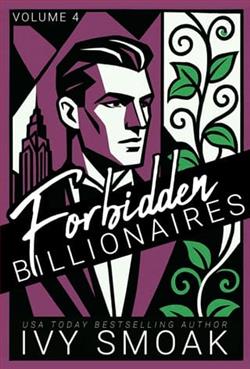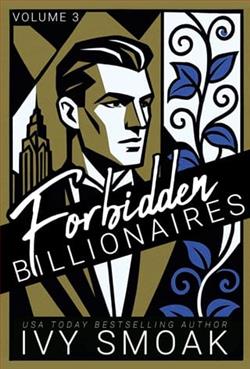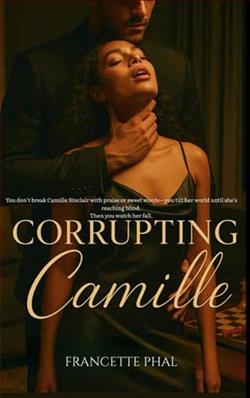Page 53 of The Venice Murders
‘More adventures,’ Jack agreed, though he sounded flat. ‘But not so far afield today.’
Casa Elena was some twenty-five miles from Venice, Jack had calculated and, determined to enjoy the journey, Flora settled herself in the rear seat of the Alfa Romeo. It was a route that took them through a diverse landscape, fields of cultivation alternating with hillsides covered in vines, and occasionally a small castle perched on high, its ancient walls clear against the skyline. The glimpse of a wide river on Flora’s side of the car had her ask the driver its name.
‘Po,’ he told her.
‘Po?’ She looked at Jack for enlightenment.
‘One of the largest rivers in Italy. It flows into the Adriatic near Venice so it could be the Po. But he might be guessing,’ he said quietly, nodding at Signor Gallo’s back. ‘There’s a vast network of rivers – the Piave, Brenta, Adige, they’re just a few – it could be one of those.’
For some fifteen minutes, they had been steadily climbing from the valley floor, pillows of cloud drifting into an otherwise unmarked sky. The air, too, had grown noticeably cooler. They were leaving behind fields fertile with produce and, in their place, climbing amongst hills, every inch of which was covered in vines. Only clusters of cypress trees, stark against the horizon, provided a contrast.
The driver was swinging the car wide around yet another bend, but then pulled up sharply to stop outside a pair of elegant gates that had come suddenly into view.
‘Look at that crest,’ Flora said softly, leaning forward and pointing to an elaborately worked shield above the entrance. ‘Such beautiful colours.’
‘Flashy.’ Jack awarded the crest only a passing glance.
Signor Gallo had climbed from the car and was now tugging at a large bronze circle, highly decorated and attached to one of the stone pillars. Somewhere in theCasaahead, a bell must be clanging and, sure enough, the gates slowly opened.
‘They’re electronic,’ Flora commented, ‘so why not a button, I wonder? But the bronze pull is stunning.’
‘Like I said, flashy.’ Jack was plainly in one of his dismissive moods and they were always best to ignore.
On either side of the drive, a long drive – Flora estimated it to be at least half a mile – a hedge of cotoneaster had been neatly clipped and, beyond the hedge, row after row of vines crowded together, their wooden supports standing straight as soldiers. A battalion guarding its treasure.
At the end of the drive, Signor Gallo brought the car to a halt outside the porticoed entrance of a large white building and, within seconds of their arrival, a uniformed maid had opened the massive front door and was waiting for them at the top of a flight of stone steps.
‘We’re here for lunch,’ Jack told their driver, ‘but we shouldn’t be more than a few hours.’
Signor Gallo was about to resume his seat in the car when the count himself appeared from around the corner of the house. Mansion, Flora corrected herself.
‘You are here!’ he said. ‘Wonderful!’
The count, wearing newly pressed slacks and a smart shirt of pale green seersucker, was looking his elegant best and seemed a good deal more lively than when they’d last encountered him at the hotel. A closer glance, though, and Flora noticed that sadness still lurked in his eyes. With one daughter dead and the other caged in a nunnery, it would be many years, if ever, before he recovered fully from the drama that had been played out in Provence.
Falconi bent to speak to the driver and, after a burst of rapid Italian, the car disappeared around the opposite corner.
‘I have sent him to my cook,’ the count told them. ‘He will eat in the kitchen.’
The servants’ quarters then.
‘Please, come. Sybil is waiting. We have also a guest who will eat with us.’
Flora caught sight of Jack’s expression – he was finding it hard to conceal a scowl. He hadn’t wanted to make this visit, had been annoyed by his mother’s abrupt summons but felt obliged to obey. Now, he was being told they were to share their lunch with a person unknown, suggesting that Sybil’s demand could not have been as urgent as she’d made out.
Following the count into a vast drawing room, it was not, however, an unknown person who greeted them.
‘You’ve met Father Renzi, I believe.’ Sybil glided forward, air-kissing Flora and giving Jack a casual pat on the arm.
As always, she was dressed in the very highest of fashion. Flora had neither the money nor the inclination to follow the designers of the day, but she did read the occasional fashion magazine and the figured cream linen dress, full-skirted and neatly belted with a slashed neckline, had to be by Givenchy, or someone remarkably like him. To complete her ensemble, Sybil had chosen a pair of cream leather stilettos – the count must love her dearly, was Flora’s first thought on glimpsing them. Those shoes must wreak havoc with the parquet flooring.
But Sybil was at one with the house in which she now lived. The drawing room was painted a regal blue – duck egg, Flora divined – and a bank of long windows, with bounteous drapes in a toning colour, filled one entire wall. The sofas and armchairs were similarly upholstered, and so deep you could lose yourself in them and never be found. A scattering of Louis Seize marquetry tables completed the picture. A highly expensive picture.
Stephano Renzi had risen from his seat and hesitantly offered his hand to each of them in turn. He should be hesitant, Flora thought militantly. At the Vivaldi concert, he had deliberately snubbed them.
‘We will go into lunch in a short while,’ Sybil announced, in what Jack called her grand-dame voice.
‘But first, we talk,’ the count intervened, looking across at the priest for support.















